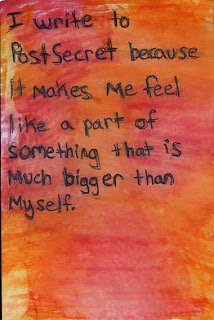Last week, we looked at treemaps (and how they're used on the website smartmoney.com to graphically represent how stocks are doing in the market). I had always seen my dad looking at the cryptic red and green bricks under the guise of "checking our investments," but I never understood just what the graphs meant. The graphics seemed so far removed from the x-axis/y-axis graphs I had learned about in school that I didn't ask my dad to explain them.
But when treemaps were explained in class last week, the concept seemed almost second-nature. Of course, it makes sense that larger bricks represent larger stocks, green means up, and red means down. A good statistical representation should make sense, and a great graphical representation should make sense and have an inherently beautiful form.
I have a friend who really knows his TED talks, and posts his favorites on Facebook. That's how I came across a particularly elegant way to represent data: the AlloSphere. Described by composer JoAnn Kuchera-Morin as "a large, dynamically varying, digital microscope," the AlloSphere lets you literally get inside of data by standing inside a giant, spherical screen while listening to data represented as sound over time (music). There are several examples and demonstrations given in the talk, though the one that stuck with me was the notion of surgeons being able to "fly into the brain as if it was a world and see tissues as landscapes and hear blood density levels as music."
I have a friend who really knows his TED talks, and posts his favorites on Facebook. That's how I came across a particularly elegant way to represent data: the AlloSphere. Described by composer JoAnn Kuchera-Morin as "a large, dynamically varying, digital microscope," the AlloSphere lets you literally get inside of data by standing inside a giant, spherical screen while listening to data represented as sound over time (music). There are several examples and demonstrations given in the talk, though the one that stuck with me was the notion of surgeons being able to "fly into the brain as if it was a world and see tissues as landscapes and hear blood density levels as music."
The AlloSphere is impressive, and at first glance, it seems as if nothing like this has existed before. But when you think about it, this is just like our traditional forms of data represenation -- just taken to a new level. The same kind of mental leap must have existed for the inventor of the stem-and-leaf-plot, or the pictograph. It's the same concept of seeing facts without actually seeing facts.
I was also struck by how this relates to the new media concepts we've been discussing in class: is Skyping really the same as talking to someone face-to-face? When you write a message on someone's Facebook wall, is it just like telling them in person? Technologies in both realms of data representation and online networking are trying to move in the same direction: making the unreal more real. Strictly speaking, Skype is software and the AlloSphere is a computer. But both strive to make virtual reality more like reality.


